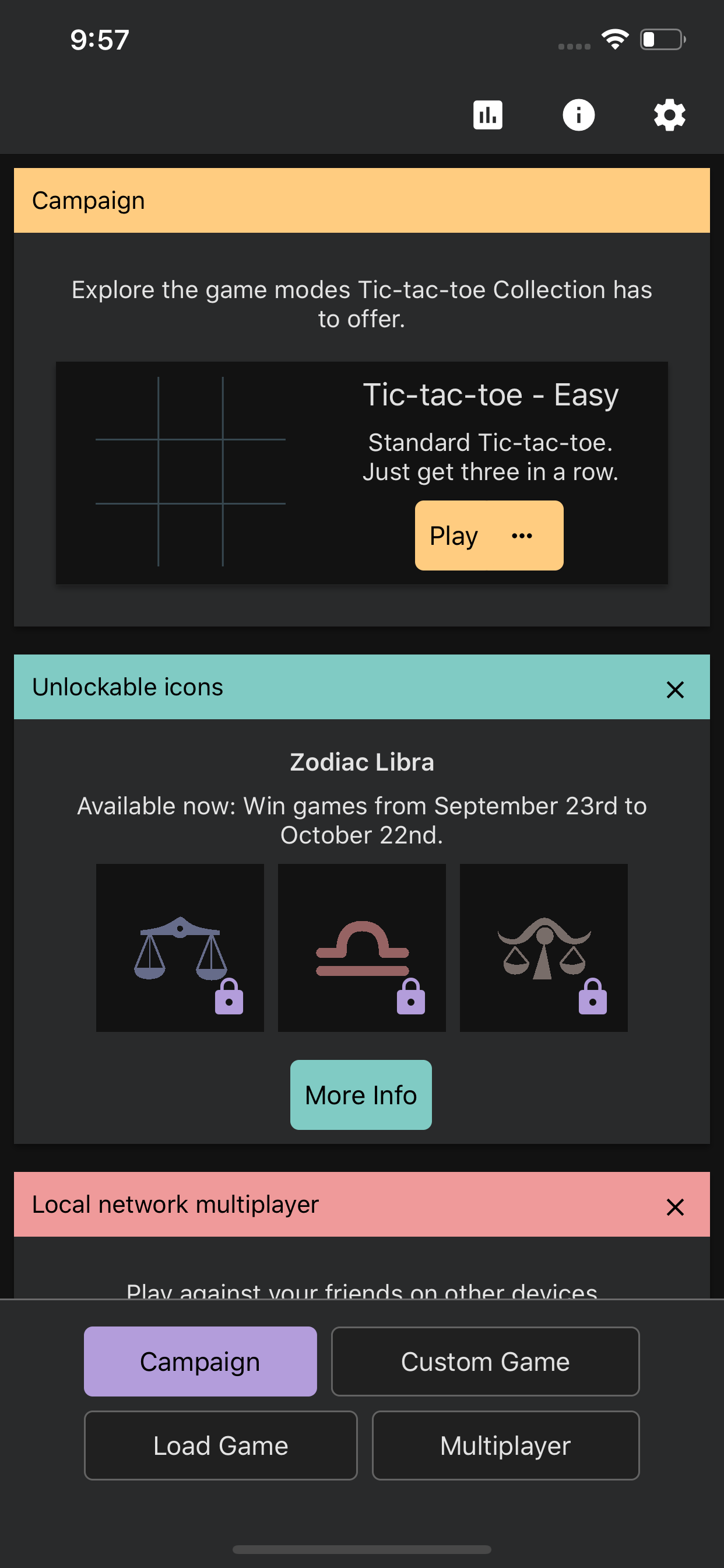
0.17 has been mostly complete for a while, but release has been slowed by some minor but prominent bugs being hard to nail down.
In the meantime, work on the next few releases has been carrying on regardless. Here is a short list based on approximate order of release:
Topology options - imminent
Why play on a normal flat bounded plane when you could play on a Klein bottle? I plan on writing a longer post explaining this in detail very soon, but for now I’ll leave this as a teaser.
Dark mode - soon
Fairly self explanatory. As well as being able to choose light or dark, you’ll be able to choose auto for supported devices (iOS 13 and Android 10).
Automatically discovered game modes - soon
Since fairness calculations based on game simulations have been improved, I can now see which game modes are fairer than others. At the moment the results are only based on game modes people have actually tried though. To improve the situation I plan to do a few things. First is to run the simulation more for modes that look promising - simulations with a few runs are unlikely to be accurate. More interesting is to take the promising modes and mutate them - change one of the properties slightly - and then simulate that. This essentially becomes a simple genetic algorithm for finding fairer games.
Player rating - early investigation
This will become a key part of any online multiplayer, but I plan to have it working offline too.
It is likely to be Elo based, but with modifications to deal with requirements that most games don’t have. First is multiplayer. I won’t be the first to deal with this using an Elo-like system, and there are a few ways to handle it that all seem reasonable. The other big requirement is inherently unfair games, and my research on this topic has found no existing material on this.
Most games are designed to give each player an equal chance of winning, or at least as close as possible. And, for games played seriously like chess, a single match involves playing several games in which the advantage alternates between players so the match as a whole is considered fair.
Tic-tac-toe Collection has mostly unfair games. But, they are at least quantifiably unfair. This means I should be able to take that into account as part of a rating system. Early investigations are promising.
AI options - early investigation
At the moment the only difference between the difficulties is how long the AI searches for. There are a couple of other parameters however. There is one for changing the bias between promising moves and unexplored moves, as well as one for how ties are scored compared to wins and losses. My plan is to expand this into different AI profiles that could vary these parameters more. Combined with allowing them to get ratings just like normal players this means the better parameters would actually be discovered over time.


